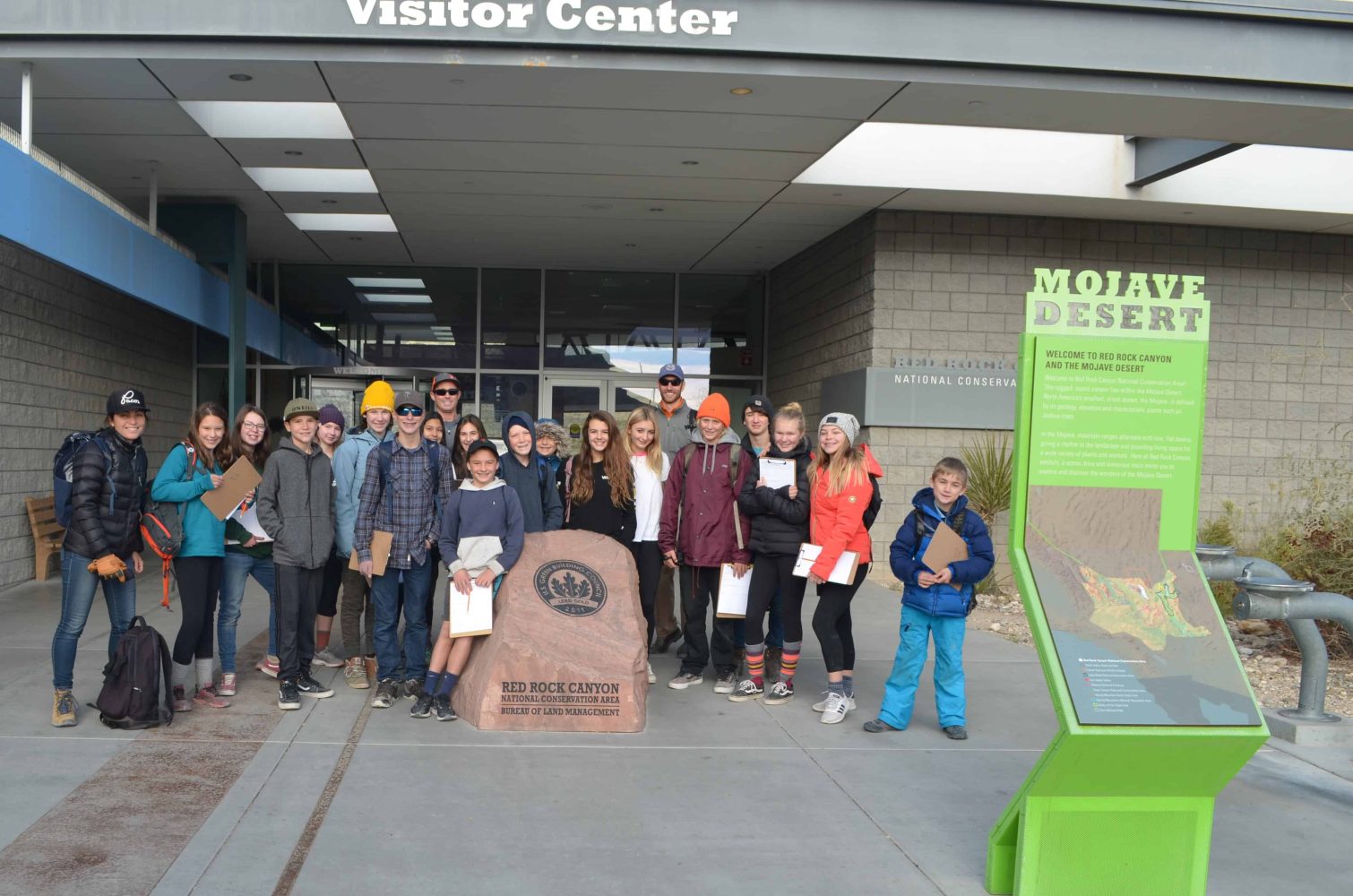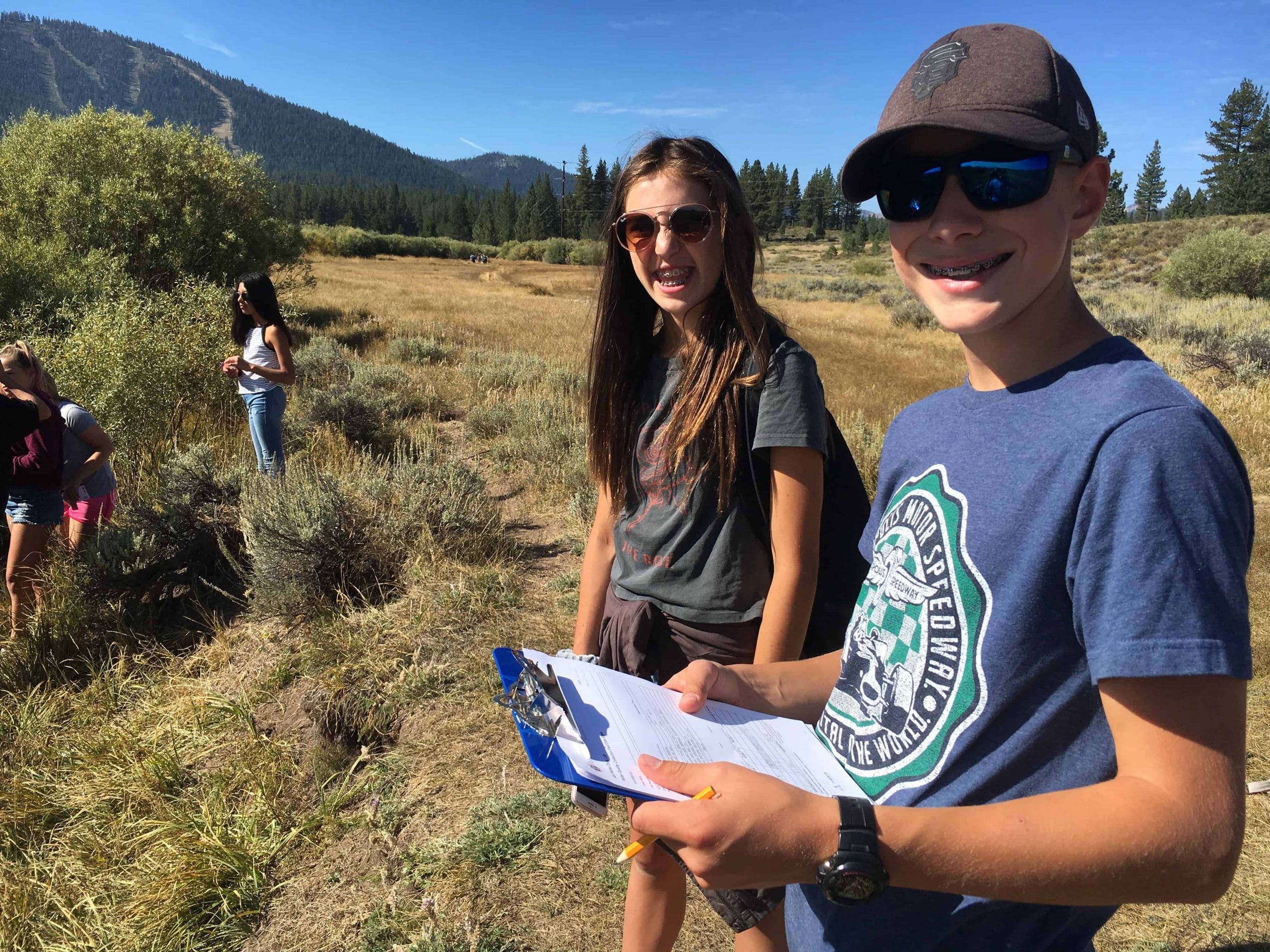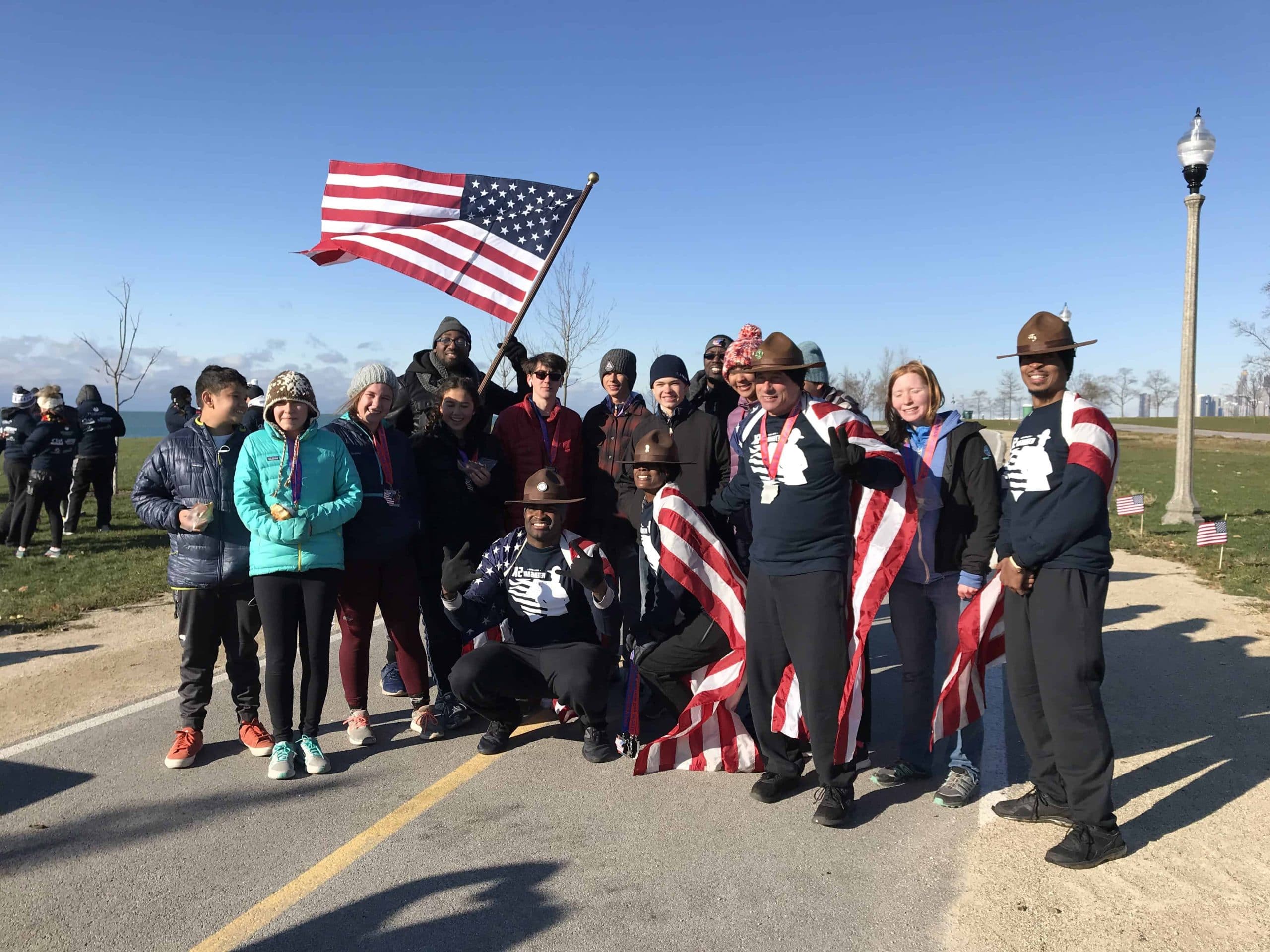How Has Humanity Adapted to and Affected Change Over Time?
How do societal norms, institutional biases, individual cultures, and beliefs impact power within a society?
As part of our Middle School Learning Expedition titled “Balance of Power” TEA students traveled to Las Vegas to better understand the changing nature of power within a political, social, and natural context. Guided by Middle School Teachers Beth Vallarino and Matt Morrison, this crew of 18 students packed into suburbans and made the 8-hour drive south to Las Vegas for a 5-day / 4-night field study.
The guiding questions on this field study included:
– How do societal norms, institutional biases, individual cultures, and beliefs impact power (Past or present) within a society?
– How do resource availability and allocation determine varying success for groups within a society?
– How has humanity adapted to and affected change over time?
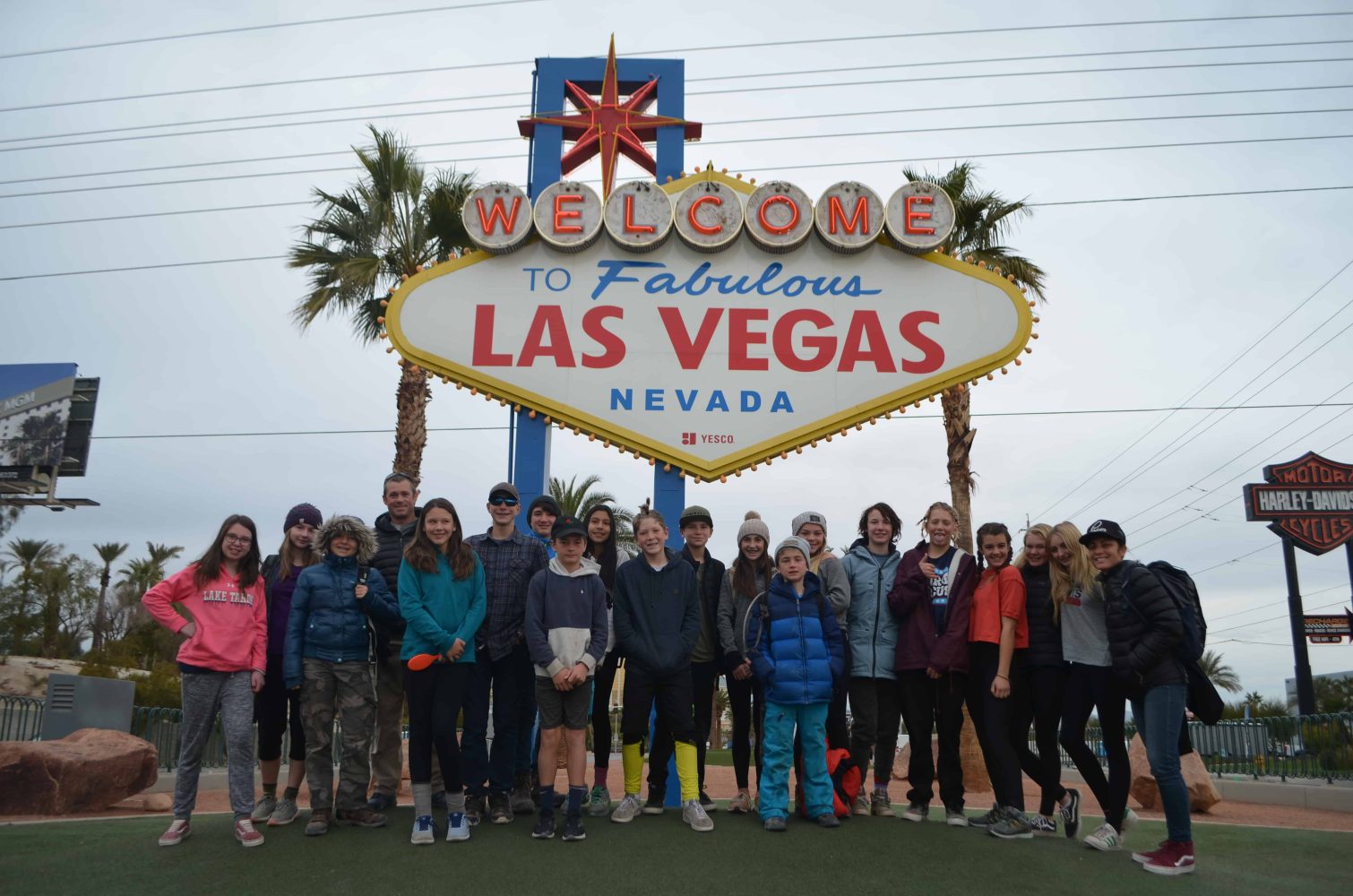
The students learned how the government would build fake towns complete with appliances, houses, manikins, clothing, and cars, to learn about how the blast and radiation would impact people and communities
To build background knowledge for this field study, students first learned about the Las Vegas nuclear test site through videos and articles. The students learned how the government would build fake towns complete with appliances, houses, manikins, clothing, and cars, to learn about how the blast and radiation would impact people and communities. Students also examined the purpose and history of the BLM. During the car ride down, students listened to podcasts related to the history of Las Vegas, as well as current and contemporary issues that arise in the city.
Once in Las Vegas, students interacted with real-world experts in a variety of locations. Students visited the Red Rock Conservancy, the Las Vegas Strip, the National Atomic Testing Museum, the Desert Research Institute, Lake Mead, the Hoover Dam, and the Willow Beach Fish Hatchery just across the state line in Arizona. The real-world experts included John Crandall from the University of Nevada at Las Vegas Anthropology Department, Park Ranger Kate Sorom at the Bureau of Land Management, Associate Research Professor of Microbiology Duane Moser, Associate Research Scientist of Archeology Ted Hartwell, Executive Director of the Division of Hydrologic Sciences Dr. Kumud Acharya, and Trevor Luna from the US Fish and Wildlife Services.
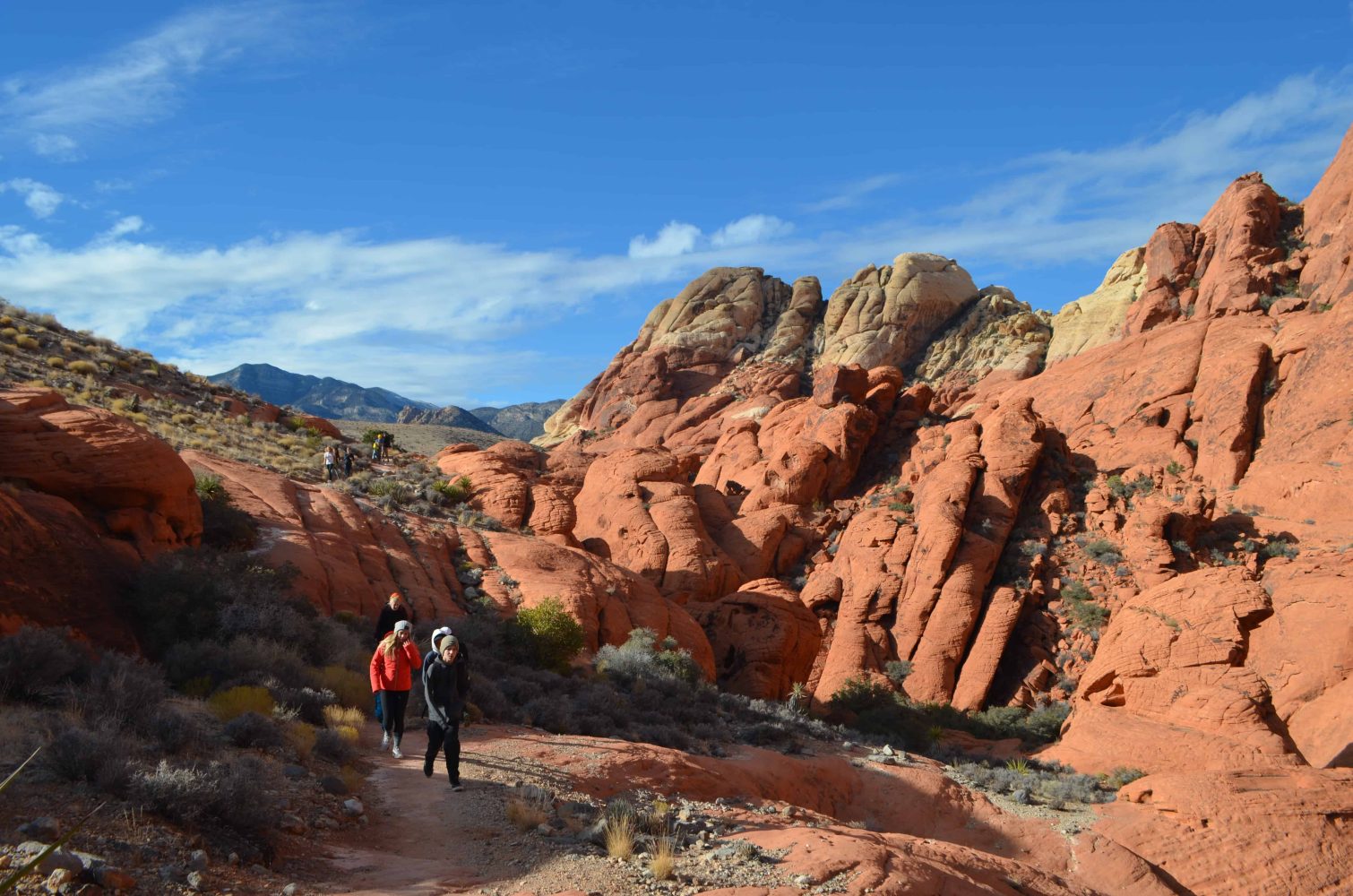
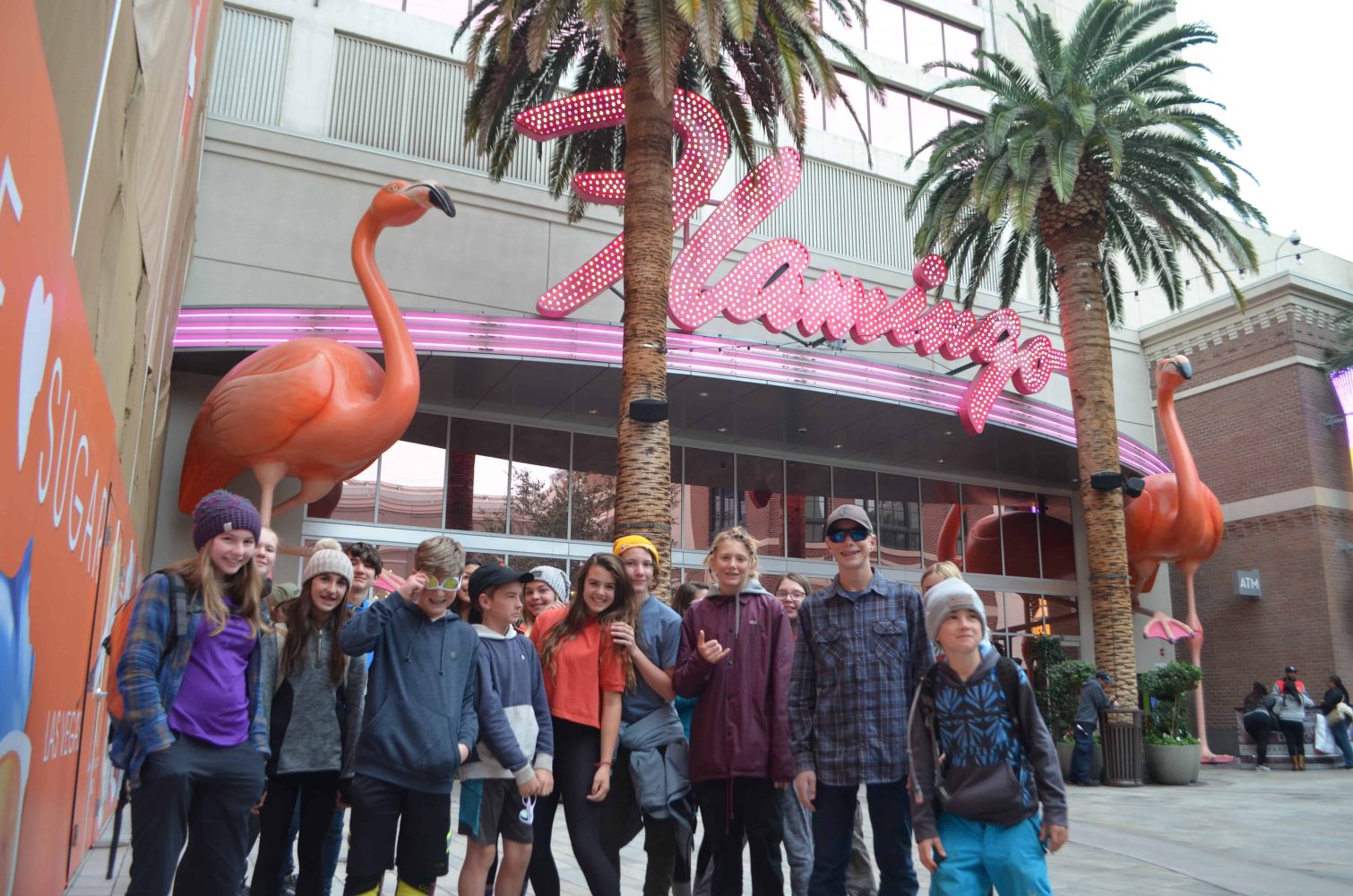
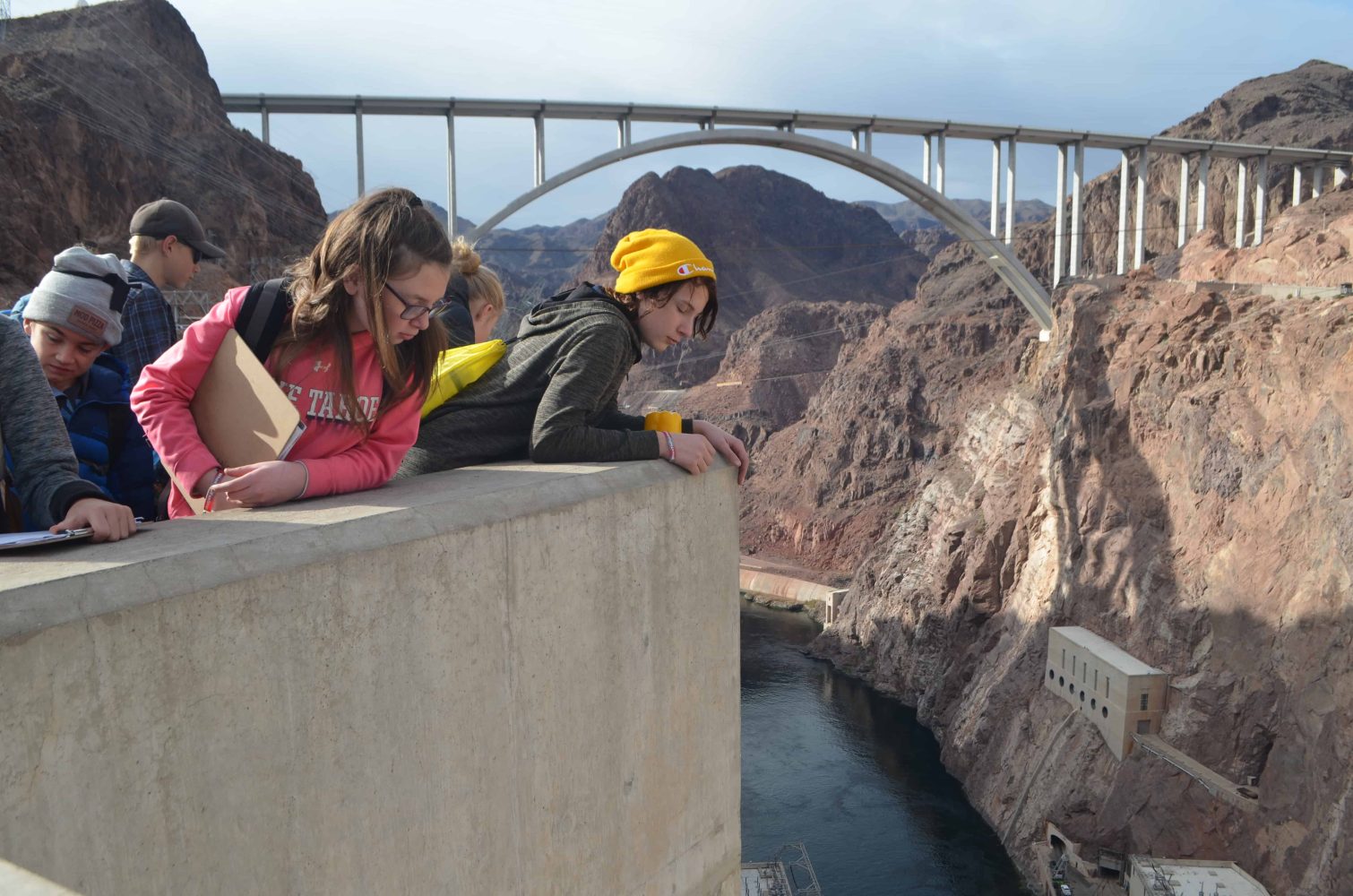
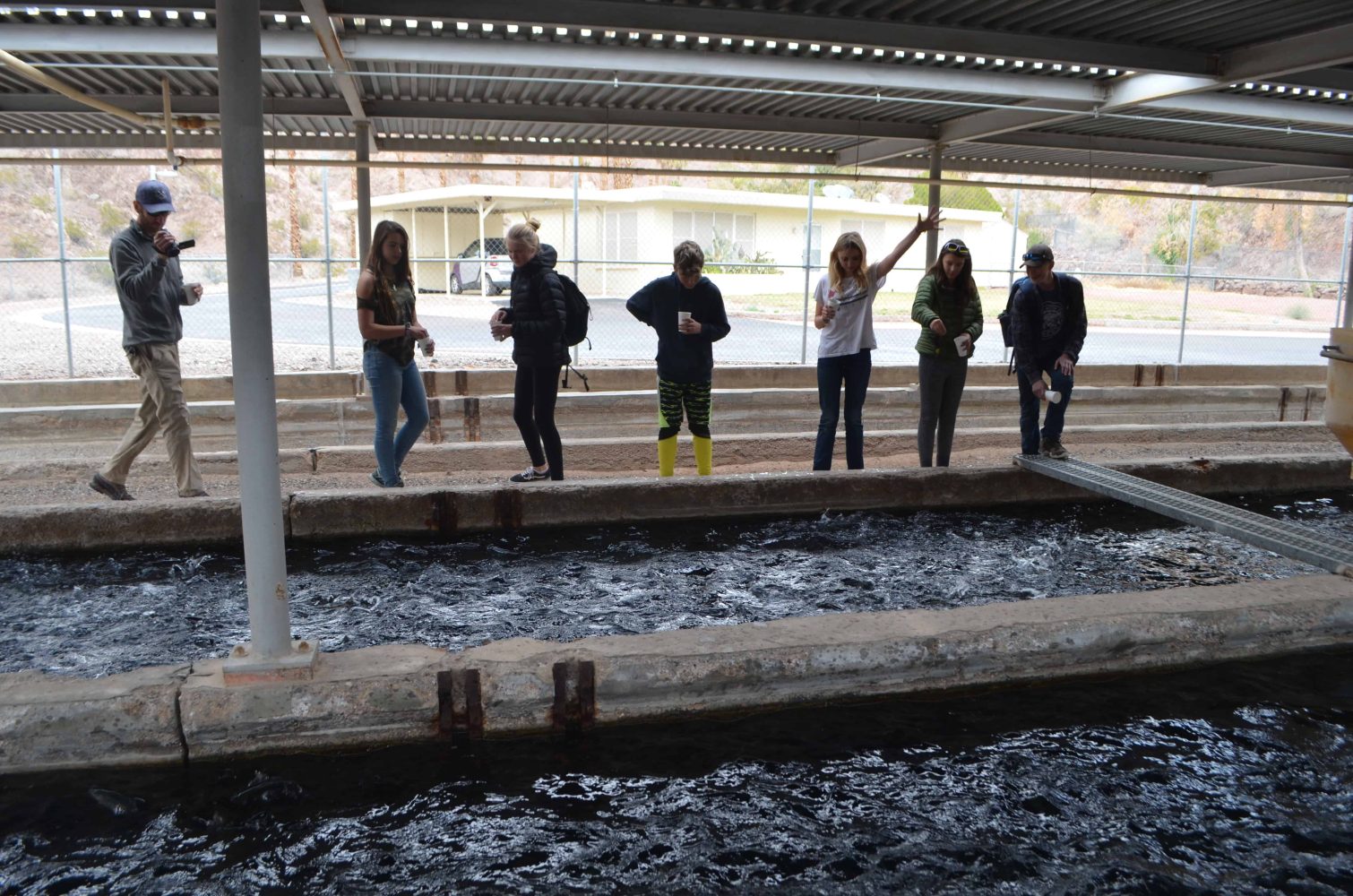
They walked under the pink flashing signs of the iconic Flamingo Hotel, saw pigeons, stopped at an amazing water feature that resembled an oasis, and were awed by the glistening lights of the strip.
Upon arrival in Las Vegas, the students immediately headed to the strip for a walking tour. To the students surprise, it smelled like french fries and cotton candy. They walked under the pink flashing signs of the iconic Flamingo Hotel, saw pigeons, stopped at an amazing water feature that resembled an oasis, and were awed by the glistening lights of the strip. They heard music blaring from fancy cars and plenty of people laughing and enjoying themselves.
Many students were a little nervous to spend time on the Las Vegas strip, but gained comfort and awareness once they were actually there.
In contrast, while at the Red Rock Conservancy, the crew smelled smelled the clean air and the desert. They saw the colored rocks and a beautiful sunset. They heard the wind blowing the desert shrubs and the birds settling in for the night.
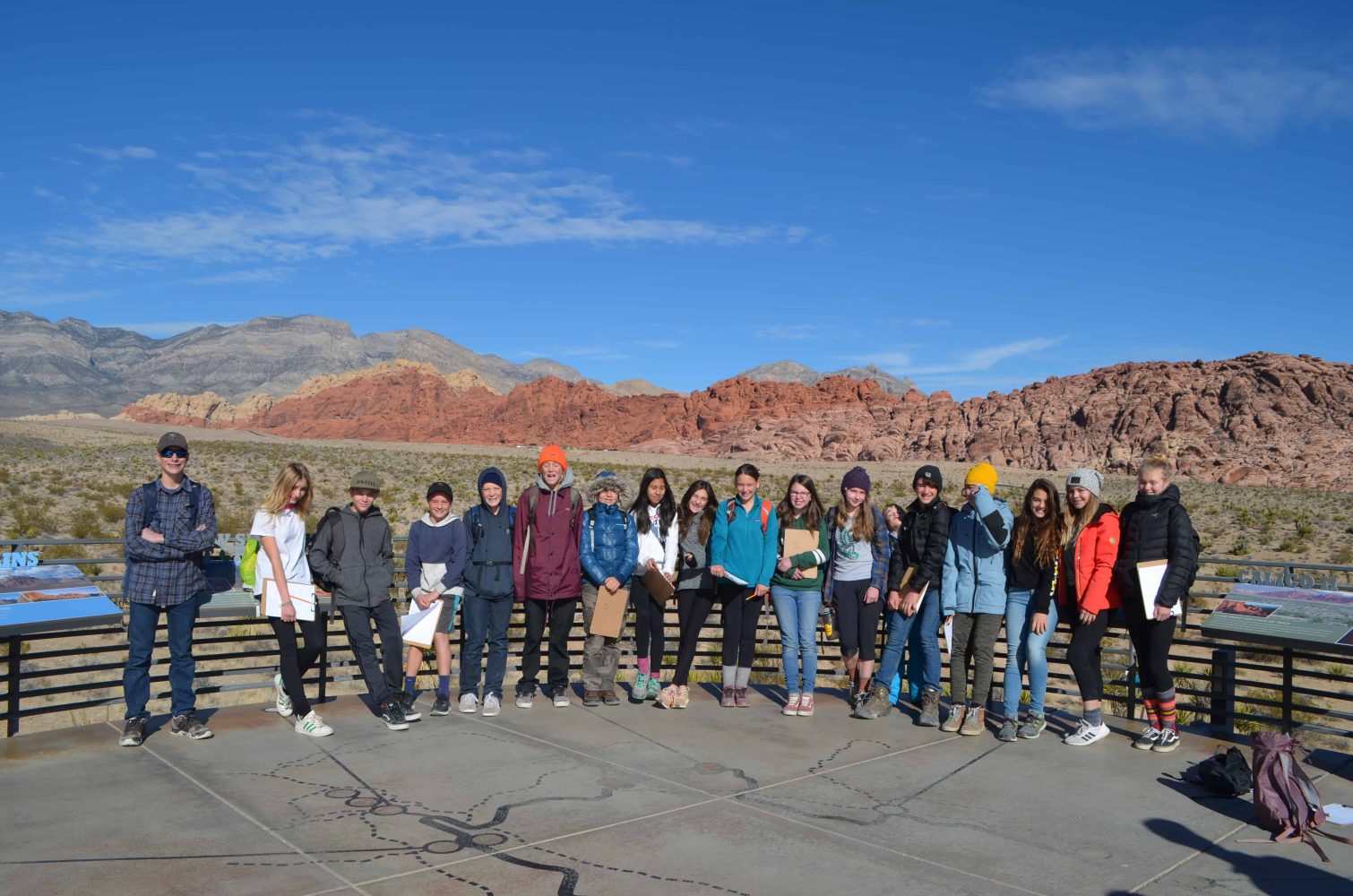
Upon reflection of their experiences in Las Vegas and the surrounding areas, students were better able to explain how humans have adapted to and affected change over time.
Walking on the Las Vegas strip opened their eyes to the diversity of people and culture in and around southern Nevada. Spending time surrounded by the natural beauty of Red Rocks opened their eyes to the natural beauty that right outside of Las Vegas. The Hoover Dam taught them how many different populations are impacted by one significant action. And through their expert interactions, they learned about the important work of archaeologists.
As the end of the trip, students felt that they had grown by being pushed out of their comfort zones. For some, city life put them out of their comfort zones. For others, camping had pushed them.
Some student said that they grew in perseverance because of the cold temperatures they experienced at night. Many said that they grew in stewardship, by keeping their areas clean and making sure everyone keeps their area clean.
Upon reflection of their experiences in Las Vegas and the surrounding areas, students were better able to explain how humans have adapted to and affected change over time. They came to understand how societal norms have influenced the balance of power in a society. They saw first-hand how beliefs and beliefs and biases impact power and how available resources impact certain people and groups. Many found that being responsible was very important. Students said the most valuable experience was noticing the excess that is Las Vegas.
